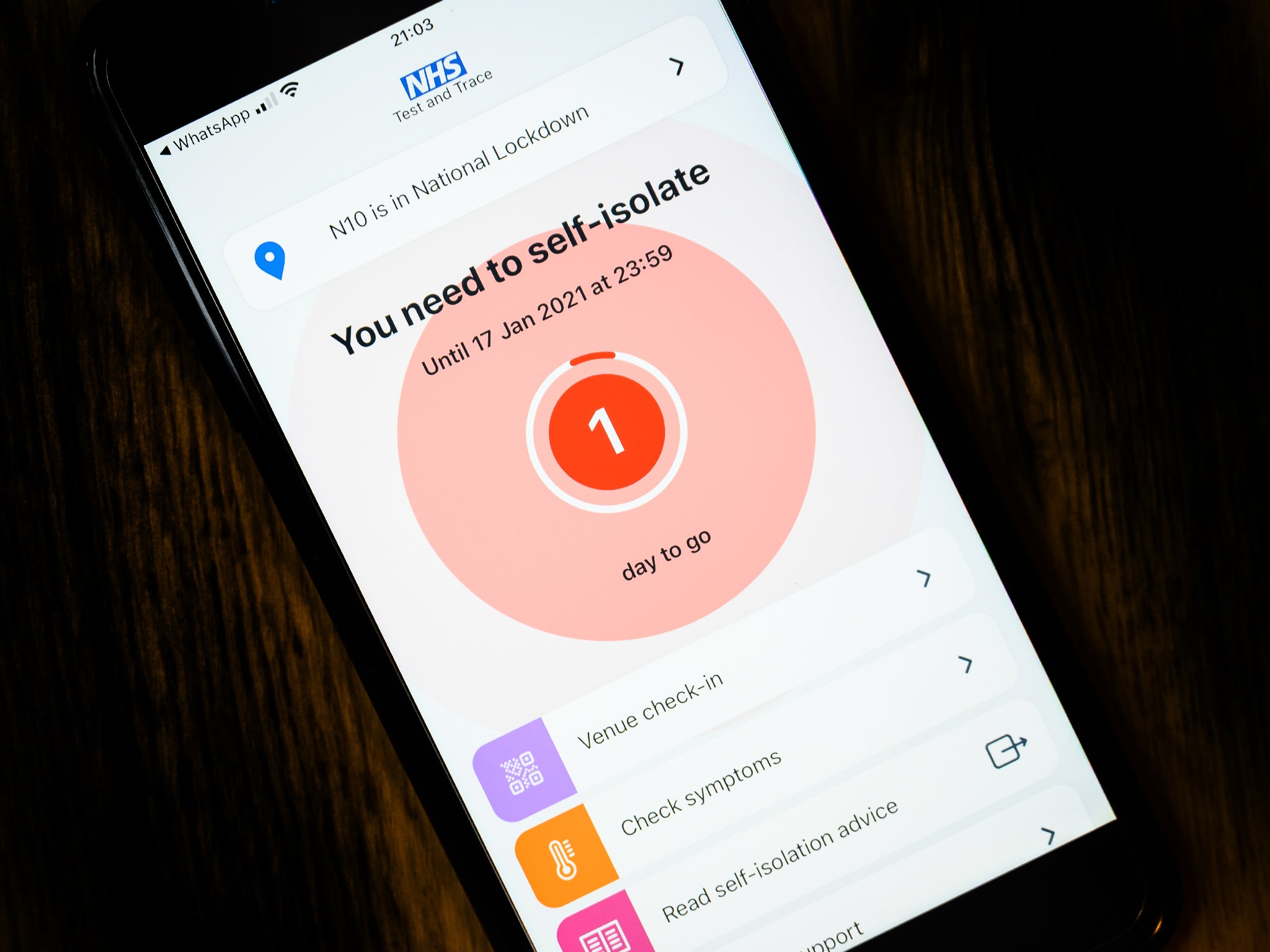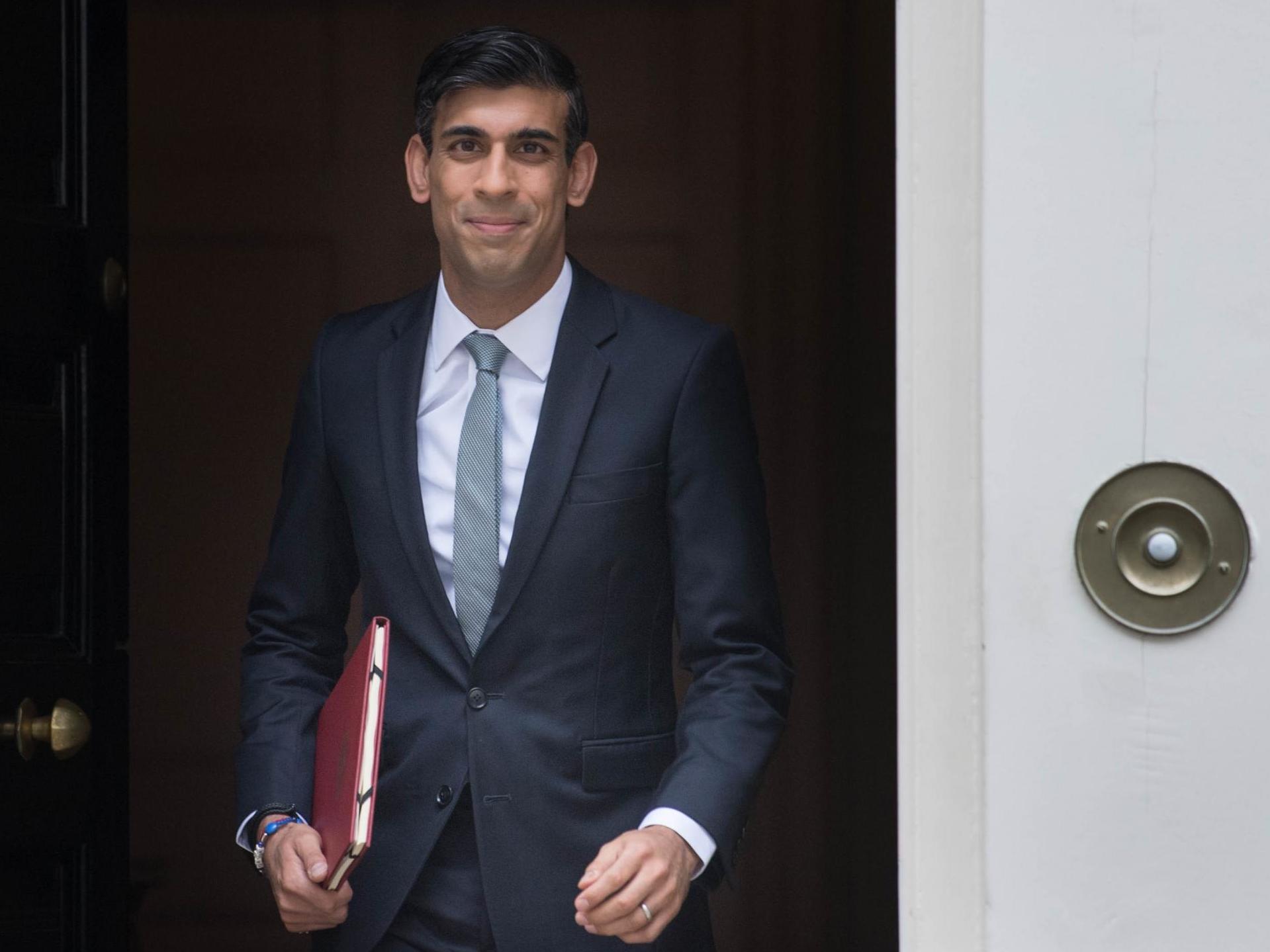Do not ignore Covid app pings to self-isolate, Shapps tells public
Government is concerned by number of people deleting app to avoid having to self-isolate

Your support helps us to tell the story
From reproductive rights to climate change to Big Tech, The Independent is on the ground when the story is developing. Whether it's investigating the financials of Elon Musk's pro-Trump PAC or producing our latest documentary, 'The A Word', which shines a light on the American women fighting for reproductive rights, we know how important it is to parse out the facts from the messaging.
At such a critical moment in US history, we need reporters on the ground. Your donation allows us to keep sending journalists to speak to both sides of the story.
The Independent is trusted by Americans across the entire political spectrum. And unlike many other quality news outlets, we choose not to lock Americans out of our reporting and analysis with paywalls. We believe quality journalism should be available to everyone, paid for by those who can afford it.
Your support makes all the difference.Transport secretary Grant Shapps has warned people against ignoring NHS Covid app orders for them to self-isolate.
It comes after the Delta variant of Covid-19 rose by a third in the past week, according to Public Health England data, and the variant currently accounts for approximately 99 per cent of confirmed coronavirus cases across the UK.
The number of exposure alerts sent to app users in England increased by more than 60 per cent in a week, according to the latest contact tracing figures.
The rise comes before the last of social distancing restrictions are due to be lifted in England.
Travel rules are to be eased on 19 July while measures on self-isolation for the fully-vaccinated will remain in place until 16 August.
The government is concerned that people will delete the app rather than risk having to cancel a holiday in the event they get told to self-isolate.
Mr Shapps said it is important that people continue to use the app and urged them to not ignore the alerts.
He told BBC Radio 4’s Today programme: “You shouldn’t ignore this [app] because it is vital information. People should want to know if they have been in contact with somebody with coronavirus. You don’t want to be spreading it around. It can still harm people.”
England ending the rule on 19 July that requires people to keep at least 1m apart from each other in public may mean the app’s sensitivity needs to be reduced, Mr Shapps said.
The app detects the distance between users and the length of time spent in close proximity – which is currently 2m or less, and more than 15 minutes.
Work is being done to “tune” the app to adapt it to an increasingly vaccinated population, Dr Jenny Harries, the head of the UK Health Security Agency, told the Commons Public Accounts Committee on Thursday.
Whitehall officials are planning on reducing the senstivity of the app by altering how long and how close someone has to be to another app user to be considered a risk of infection, it has been reported.
Mr Shapps said on Friday that the sensitivity of the app is being kept under constant review and that he has spoken to health secretary Sajid Javid about it.
A man who works for a plumbing and heating company had told The Independent that a few of his colleagues have deleted the app “because they couldn’t afford to self-isolate”.
Professor Henry Potts, a member of the Spi-B group of behavioural experts advising the government, said that ministers need to make it easier for people to self-isolate, adding that there has been a “steady rise” of people deleting the app.
He suggested that the government offers more financial and “practical support” to improve rates of self-isolation.
Prof Potts told the Today programme: “The problem of people deleting the app or simply turning the app off or ignoring what it says has been a problem for many months.”
Chancellor Rishi Sunak has also said that Mr Javid is looking at an “appropriate, balanced and proportionate” approach for isolation when people are contacted by the NHS app.
Meanwhile, Mr Sunak also urged workers to return to the office once restrictions are lifted on 19 July in England, amid fears over the economic impact of people working from home.

He stressed that young people and trainees would most benefit from working with colleagues in person, but added that he “trusts people and businesses to make decisions for themselves”.
But unions have raised concerns about the lack of guidance for employees to safely return to the workplace.
Trades Union Congress (TUC) general secretary Frances O’Grady warned that without detailed plans the country could be “hobbled by rising infections and enforced self-isolation” keeping workers out of action.
She has written to the business secretary Kwasi Kwarteng to express the TUC’s “real fears” that “clear, detailed guidance for employers will be replaced by vague exhortations to do the right thing, resulting in confusion.”
Ms O’Grady added: “We believe this amounts to the government washing its hands of its responsibility to ensure workplace safety.”
Join our commenting forum
Join thought-provoking conversations, follow other Independent readers and see their replies
Comments